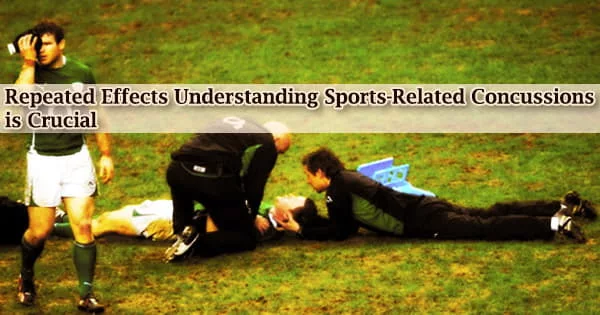Trinity College Dublin scientists have disclosed an important gain in our understanding of mild head trauma (concussive brain injury) and how it might be monitored and treated in the future.
It appears that repeated strikes, rather than isolated events, produce critical damage to brain blood vessels. Mild brain trauma has become more widely recognized in recent years as a result of collision and combat sports.
It is, nonetheless, a very common injury in children and young adults, and it poses a considerable problem to physicians because there are no reliable biomarkers or objective imaging procedures to treat it.
“This was a hypothesis-driven project whereby we challenged the hypothesis that repetitive head trauma would induce damage to small blood vessels in the brain that we would then be able to image with a novel form of MRI-based brain scans,” said Dr. Matthew Campbell, Assistant Professor at Trinity.
The Trinity-led Concussion Research Interest Group (CRIG) used sensor-enabled mouthguard technology developed by Professor David Camarillo’s group at Stanford University, as well as dynamic contrast-enhanced MRI, to confirm the number and severity of head impacts that would result in the appearance of “leaky” blood vessels within the brain.
The clinical research study, which took four years to complete and is part of a larger longitudinal study that is currently ongoing, included participants from combat and collision sports such as mixed martial arts (MMA) and rugby.
Our findings, for the first time, suggest that repetitive head trauma can lead to an MRI signal that we can definitively link to the number and severity of impacts to the head. It appears that the repetitive nature of these impacts, as opposed to single events, are causing damage to the capillaries of the brain.
Dr. Colin Doherty
Concussive brain injuries
While it is apparent that concussions elicit clinical symptoms including dizziness, nausea, and disorientation, these symptoms appear without any negative findings on CT or MRI scans, and/or the existence of any identifiable blood-based biomarkers.
As a result, clinical care of concussions is difficult, and new tools to aid in diagnosis and recovery are required.
Dr. Colin Doherty, Consultant Neurologist at St James’s Hospital and clinical lead on the study, added:
“Our findings, for the first time, suggest that repetitive head trauma can lead to an MRI signal that we can definitively link to the number and severity of impacts to the head. It appears that the repetitive nature of these impacts, as opposed to single events, are causing damage to the capillaries of the brain.”
According to the study, repetitive hits to the head, not just concussions, are likely to cause alterations in the brain’s micro-vessels. When adopting a new type of MRI-based imaging, these alterations become plainly obvious.
While the research was limited to a small number of MMA fighters and rugby players, the findings could pave the way for more robust and objective return-to-play criteria in the future, as well as enhanced player safety.
“This study has highlighted the critical importance of continued efforts to study the underlying effects of concussive brain injuries in all sports. It is imperative that the governing bodies take note of these findings and work together to protect athletes now and in the future,” added co-author Professor Mick Molloy, former Chief Medical Officer of World Rugby.
Science Foundation Ireland (SFI), the St James’s Hospital Foundation, and the Ellen Mayston Bates bequest in the Trinity Foundation all contributed to the study, which was published this week in the international journal Journal of Neurotrauma.
















